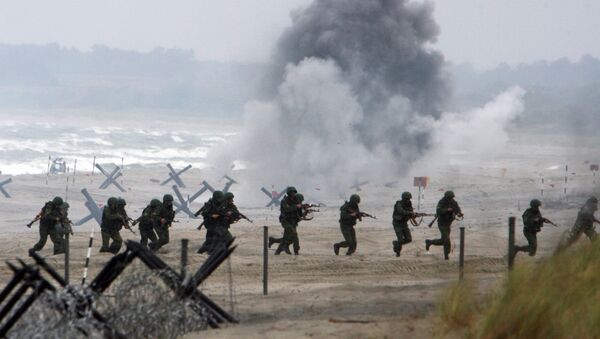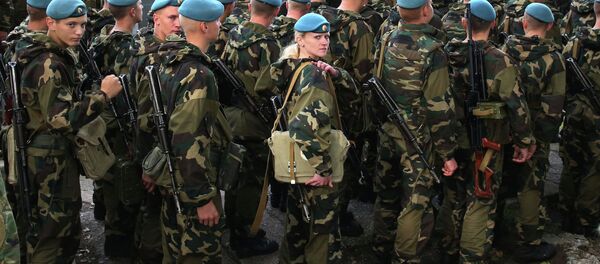VILNIUS (Sputnik) — Earlier, NATO Secretary General Jens Stoltenberg said that the alliance did not see any imminent threat posed against any NATO member by the drills, however, Baltic states and Poland again resorted to citing the alleged threat from Russia and voiced concern over the drills.
"The Ministry of the Interior and its subordinate institutions have repeatedly shown during the exercises that they can work together with the Lithuanian army. There are no signals indicating that people of Lithuania should be afraid of the exercises that are being prepared near our borders," Misiunas said, as quoted by the Defense Ministry press service.
According to the press service, Defense Minister Raimundas Karoblis drew attention to the fact that Lithuania was constantly monitoring security in the region and exchanging information with NATO.
"At the moment, there are no signs that would indicate that Zapad-2017 exercises can be used as a cover for real operations, but Lithuania closely follows the security situation in the region and the preparations for the exercise with NATO and the allies, so we are ready to respond to threats and unforeseen situations, if such arise," Karoblis said.
The Russian Foreign Ministry said earlier that increasing military presence of NATO in Eastern Europe went unnoticed amid groundless criticism of the Russian-Belarusian Zapad-2017 military exercises.
Moscow has repeatedly criticized the increased presence of the alliance’s troops and military facilities near the Russian border. Moscow has said Russia had never planned and does not plan to attack any NATO member.
Zapad-2017 is a joint strategic exercise of the Russian and Belarusian armed forces scheduled for September 14-20, 2017.



